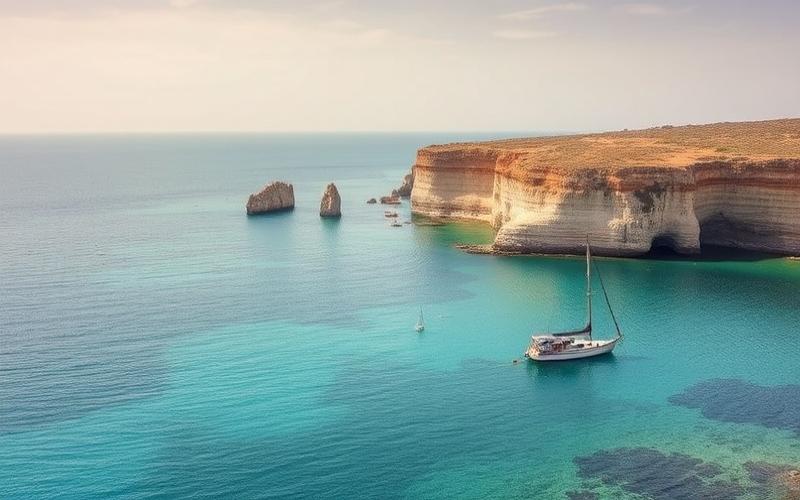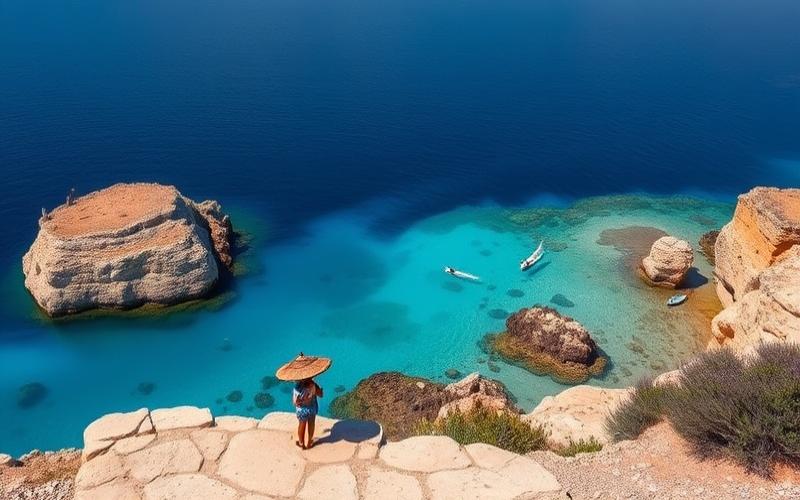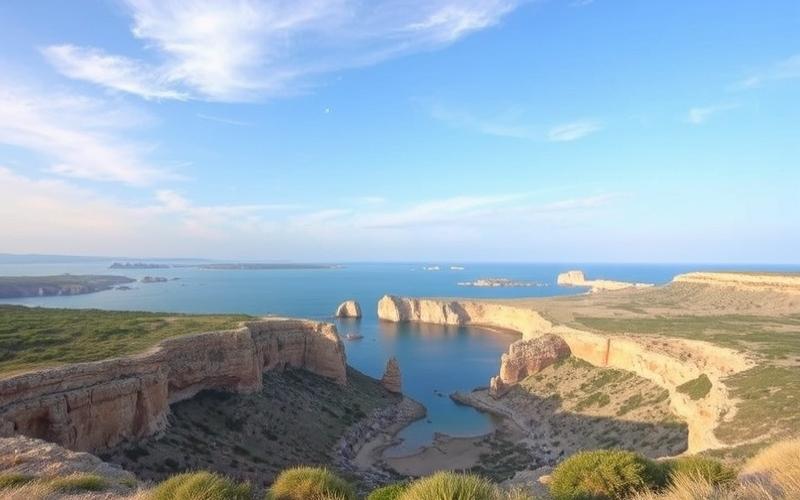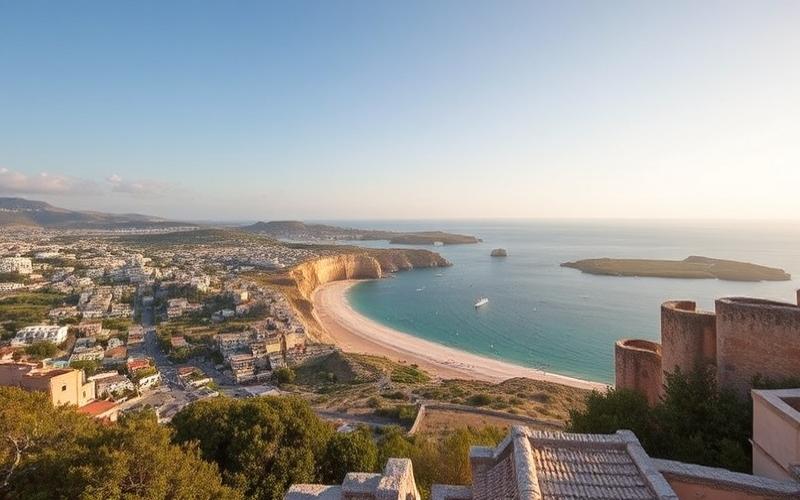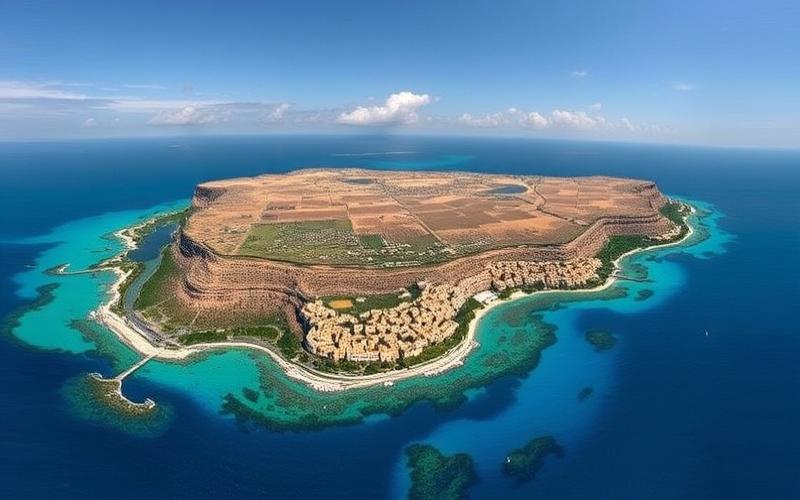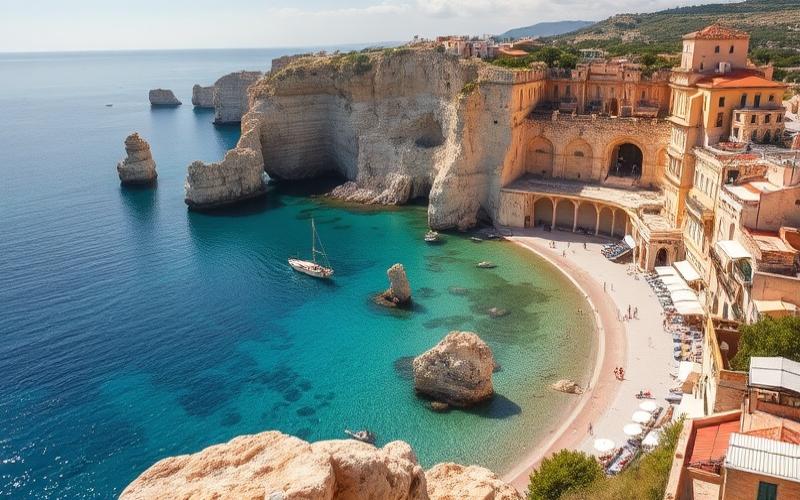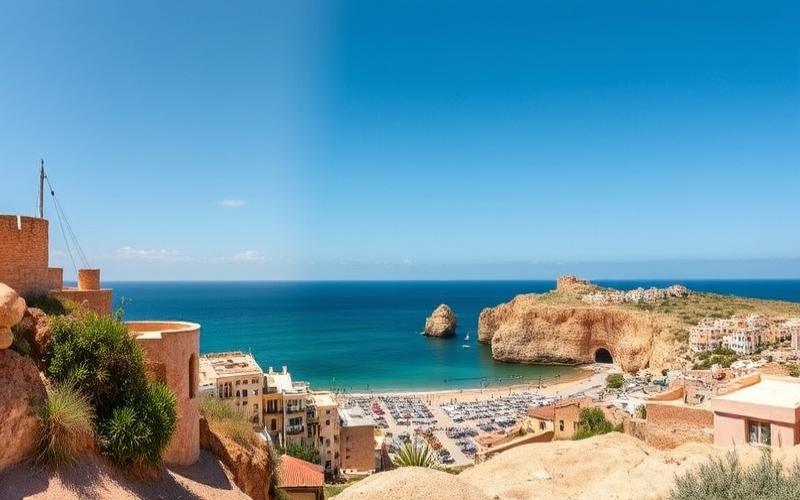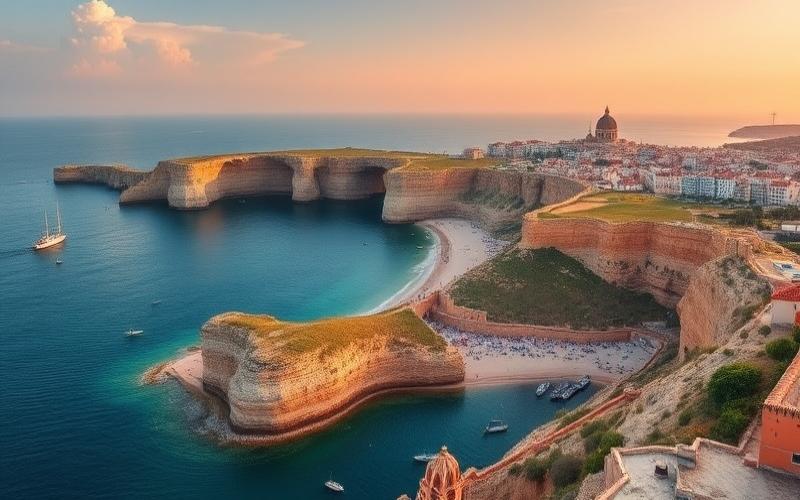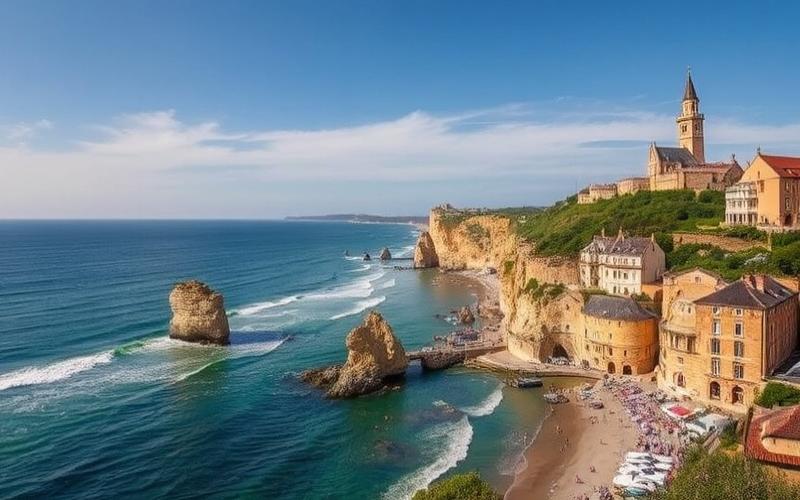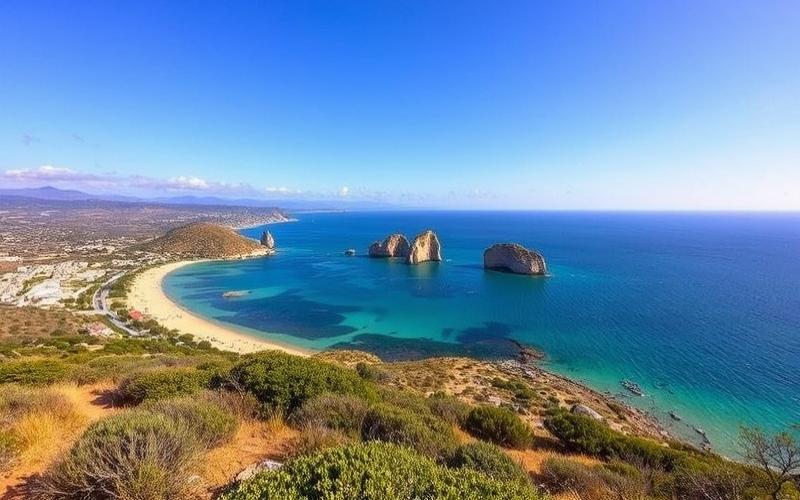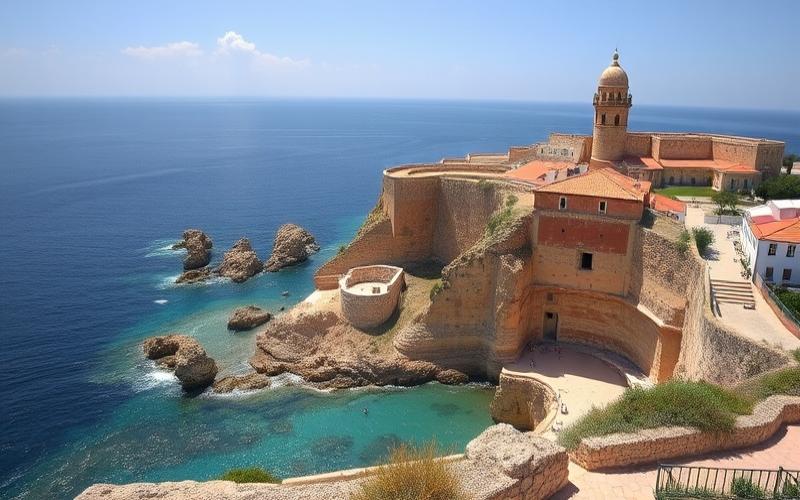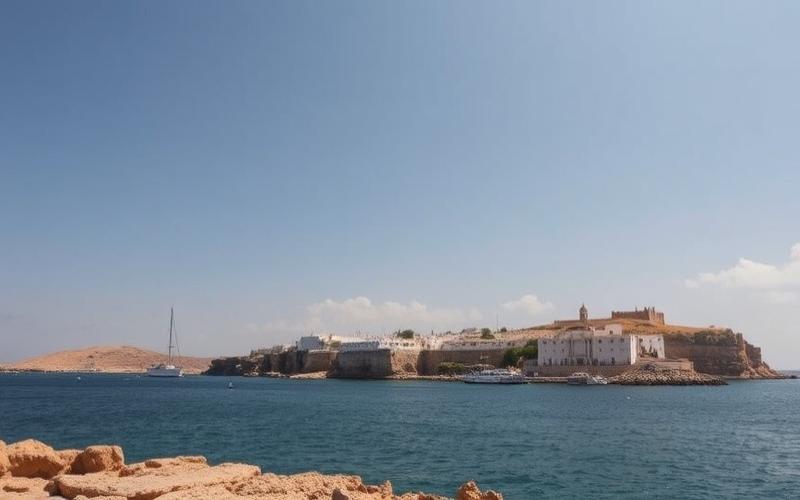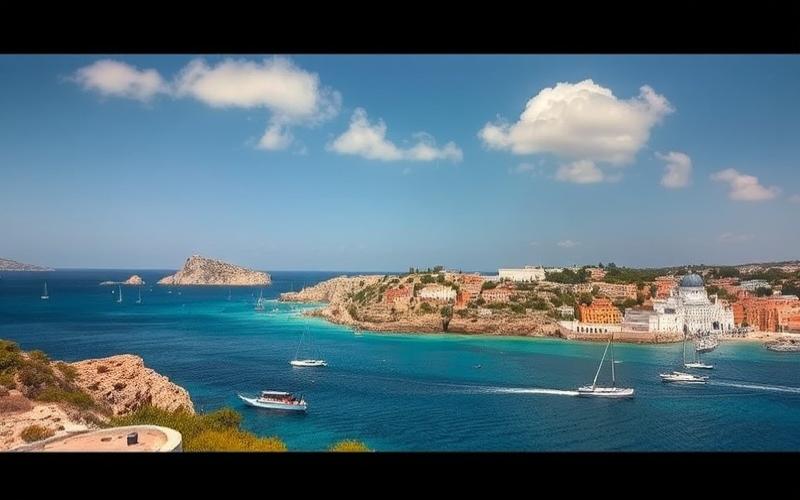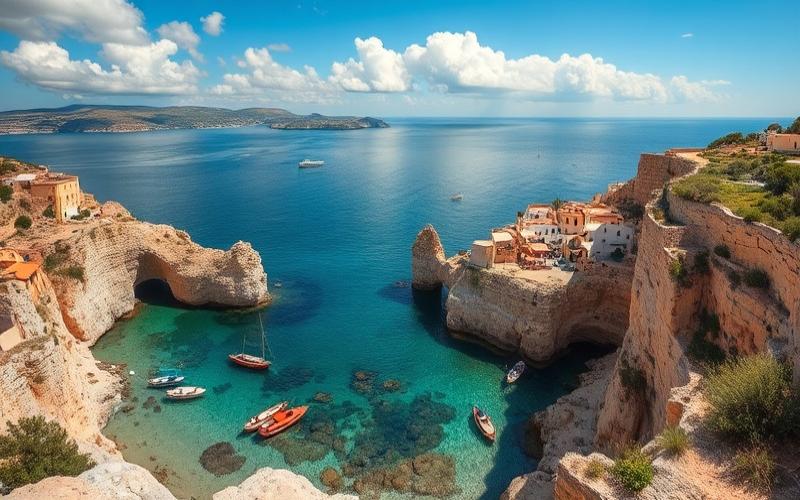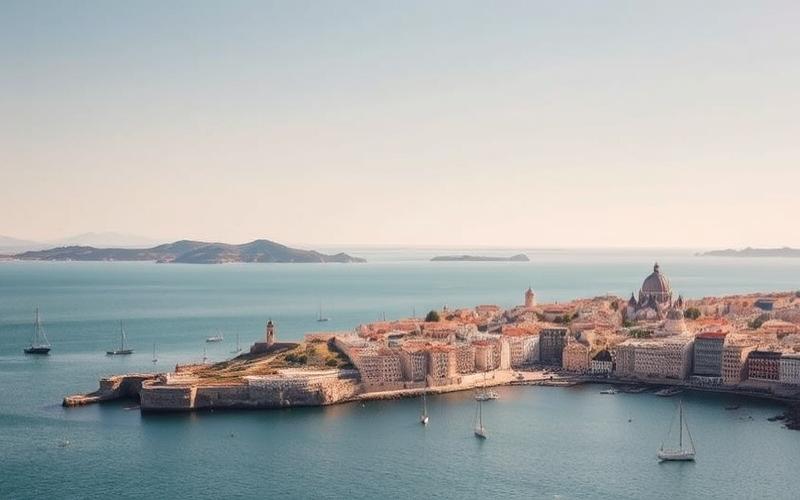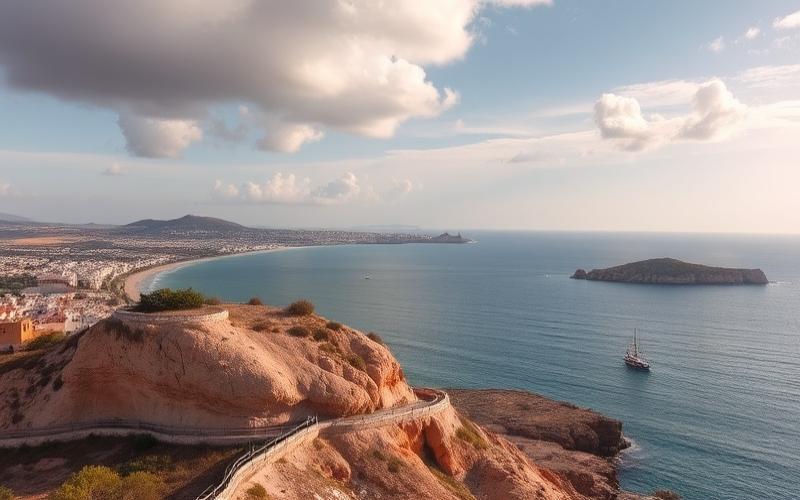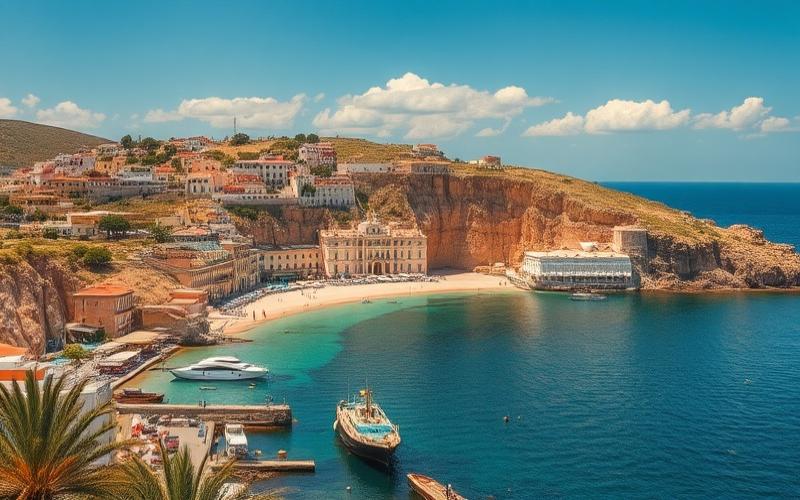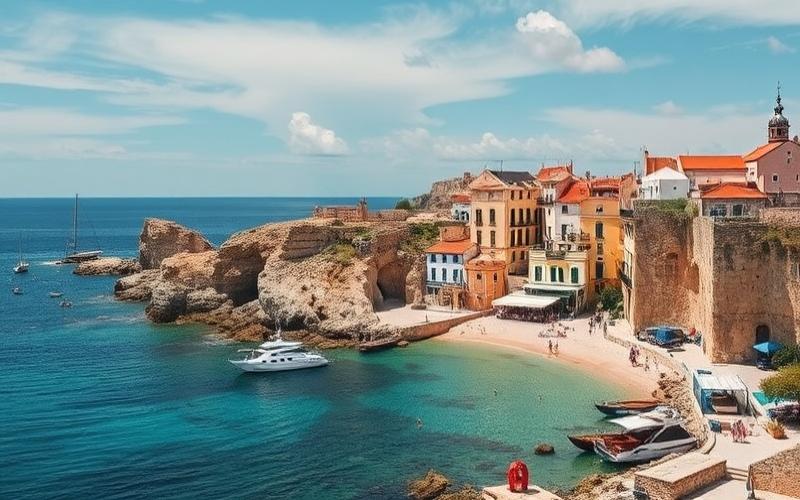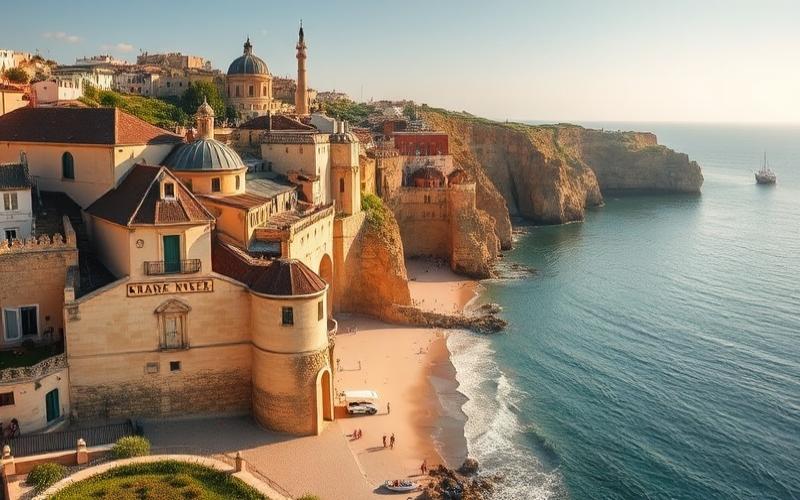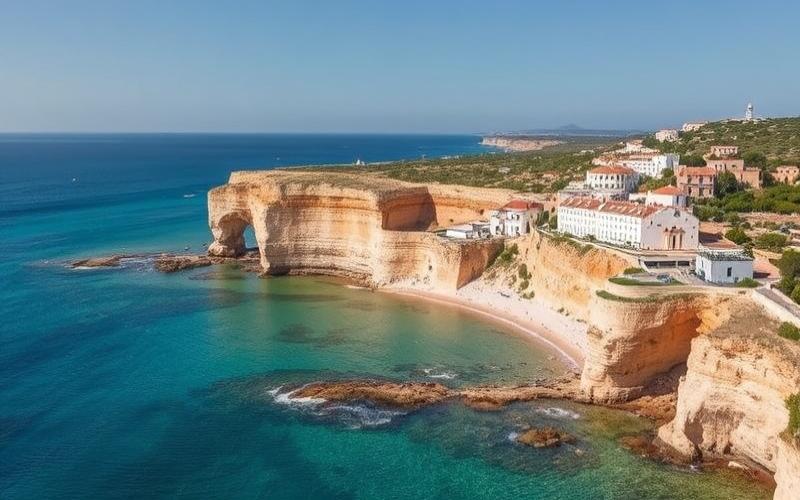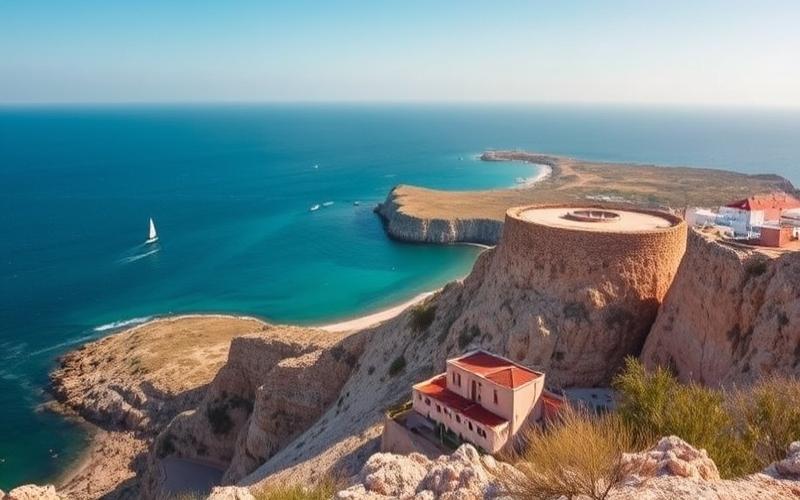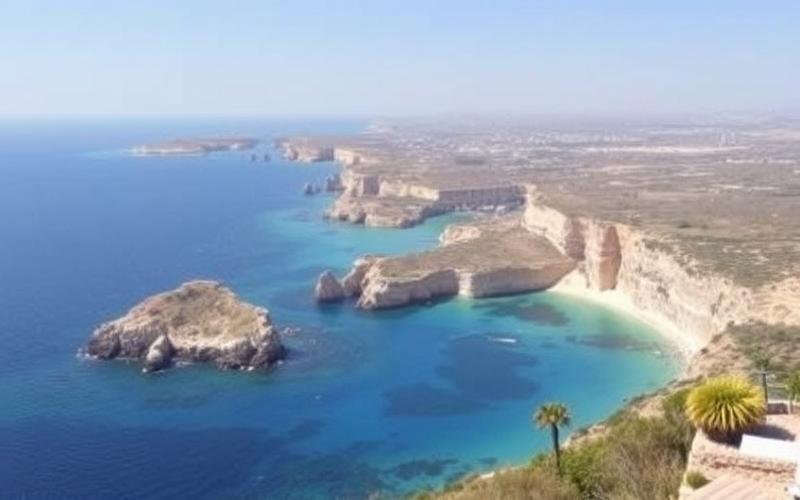
 Published on and written by Cyril Jarnias
Published on and written by Cyril Jarnias
For expatriates settling in Malta, understanding local religious practices is essential for integrating harmoniously into Maltese society. This small Mediterranean archipelago is deeply influenced by the Catholic religion, which shapes many aspects of daily life and local traditions. In this article, we will explore in detail the impact of religion on Maltese culture and provide practical advice for expatriates wishing to adapt to this unique context.
The Omnipresence of Catholicism in Maltese Society
Malta is one of the most Catholic countries in the world, with over 90% of the population identifying as Catholic. This strong religious presence manifests in various ways in daily life:
Architecture and Urban Landscape
One of the first things expatriates notice upon arriving in Malta is the omnipresence of churches and religious symbols. It’s often said that there are as many churches as there are days in the year in Malta. These religious buildings, often beautifully ornate, dominate both urban and rural landscapes.
Daily Practices
Religion structures the lives of many Maltese people. It’s common to see entire families attending Sunday mass, an important weekly ritual for many. Additionally, numerous people attend daily mass before going to work, demonstrating the importance of faith in their lives.
Influence on Laws and Politics
The influence of the Catholic Church is also felt in certain legal and political aspects. For example, Malta was one of the last European countries to legalize divorce (in 2011) and abortion remains illegal in most cases. These positions reflect the persistent influence of traditional Catholic values in Maltese society.
Good to Know:
For expatriates, it’s important to understand that religion is not just a private matter in Malta, but permeates many aspects of public and social life. This understanding will facilitate adaptation and prevent cultural misunderstandings.
Religious Festivals: At the Heart of Maltese Culture
The Maltese calendar is punctuated by numerous religious festivals celebrated with fervor and enthusiasm. These celebrations offer expatriates a unique opportunity to immerse themselves in local culture and understand the importance of religion to the Maltese.
The Festi: A Unique Tradition
The “festi” are parish festivals that mainly take place from June to September. Each village or parish celebrates its patron saint with great fervor. These celebrations include:
- Religious processions with the patron saint’s statue
- Elaborate street decorations
- Spectacular fireworks displays
- Local brass band concerts
- Traditional food stalls
For expatriates, participating in a “festa” is an excellent way to immerse themselves in Maltese culture and build connections with the local community.
Easter and Christmas: Major Celebrations
Holy Week and Easter are particularly important periods in Malta. The Good Friday processions, where life-sized statues representing the Passion of Christ are carried through the streets, are spectacular events not to be missed.
Christmas is also celebrated with great enthusiasm, with live nativity scenes, well-attended midnight masses, and festive decorations throughout the island.
Other Important Religious Festivals
- Saint Paul’s Shipwreck (February 10th): Commemorates Saint Paul’s arrival in Malta
- The Assumption (August 15th): A major festival celebrated throughout the country
- The Feast of the Immaculate Conception (December 8th): Marks the beginning of the Christmas season
Good to Know:
For expatriates, it’s recommended to familiarize yourself with the calendar of religious festivals in Malta. Some of these celebrations may affect business hours and public service schedules.
Impact on Daily and Professional Life
The strong religious presence in Malta has repercussions on various aspects of daily and professional life that expatriates need to consider:
Public Holidays and Work Schedules
Many public holidays in Malta are linked to religious festivals. It’s important for expatriates to familiarize themselves with the public holiday calendar, as this can affect work schedules and activity planning.
Sunday Closures
Although less strict than before, the tradition of Sunday as a day of rest is still observed by many businesses, particularly in small towns and villages. Expatriates need to adapt to these reduced opening hours on Sundays.
Dress Codes
When visiting churches or participating in religious events, it’s important to observe a modest dress code. This typically involves covering shoulders and knees, particularly for women.
Social Interactions
Religion can often be a common conversation topic in Malta. Expatriates should be prepared for discussions about faith and religious practices, while remaining respectful of local beliefs.
Good to Know:
Although Maltese society is deeply religious, it is generally tolerant of other beliefs. Expatriates should not feel obligated to participate in local religious practices, but respect and open-mindedness are appreciated.
Religious Freedom and Practice of Other Religions in Malta
Although Catholicism is predominant, Malta guarantees freedom of religion to all its residents, including expatriates. Here are some important points to consider:
Legal Framework
The Maltese Constitution guarantees freedom of worship and prohibits religious discrimination. Expatriates are free to practice their own religion without fear of persecution or legal discrimination.
Other Religious Communities
Although minority, other religious communities are present in Malta, including:
- A small Muslim community (approximately 2% of the population)
- Protestant and Orthodox communities
- A small Jewish community
Places of Worship for Non-Catholics
Non-Catholic expatriates can find places of worship, although they are less numerous:
- A main mosque in Paola
- Several Protestant churches, particularly in Valletta and St Julian’s
- A synagogue in Valletta
Resources for Expatriates
Expatriates seeking to practice their religion can find resources through:
- Existing expatriate communities
- Online groups and forums dedicated to expatriates in Malta
- International cultural associations present on the island
Good to Know:
Although religious freedom is guaranteed, expatriates should be aware that public practice of non-Catholic religions may sometimes attract attention in more traditional areas of the island. A discreet and respectful approach is recommended.
Tips for Harmonious Adaptation
For expatriates wishing to integrate harmoniously into Maltese society while respecting their own beliefs, here are some practical tips:
Respect Local Traditions
Even if you don’t share Catholic beliefs, show respect for local traditions. This may include maintaining silence during religious processions or observing appropriate dress codes when visiting churches.
Participate in Cultural Celebrations
The festi and other religious celebrations are also important cultural events. Participating in these festivities, even as a simple observer, can be an excellent way to integrate and understand Maltese culture.
Be Open to Dialogue
Maltese people are generally proud of their religious heritage and may be curious to discuss religion. Be open to these conversations, while remaining respectful of differences in beliefs.
Learn About the Religious Calendar
Familiarize yourself with the main religious festivals and their practical implications (public holidays, business closures, etc.) to better plan your daily life.
Find a Balance
If you practice another religion, find ways to maintain your practice while adapting to the local context. This may involve finding a community of your faith or adapting your practices to your new environment.
Good to Know:
Integrating into a strongly religious society like Malta doesn’t necessarily mean adopting its beliefs, but rather understanding and respecting its cultural and social importance.
Conclusion
Understanding local religious practices in Malta is essential for a successful expatriate experience. The Catholic religion, deeply rooted in Maltese culture, influences many aspects of daily life, from festive celebrations to social interactions.
For expatriates, adapting to this unique religious context requires a blend of respect, open-mindedness, and cultural understanding. By participating in local celebrations, respecting traditions, and remaining open to dialogue, expatriates can not only integrate more easily but also enrich their cultural experience in Malta.
Although Maltese society is deeply Catholic, it generally remains tolerant of other beliefs. Expatriates have the freedom to practice their own religion while adapting to the local rhythm of life influenced by Catholicism.
Ultimately, the key to successful adaptation lies in balancing respect for local traditions with maintaining one’s own cultural and religious identity. This approach will allow expatriates to have a rewarding and harmonious experience in this beautiful Mediterranean country.
Disclaimer: The information provided on this website is for informational purposes only and does not constitute financial, legal, or professional advice. We encourage you to consult qualified experts before making any investment, real estate, or expatriation decisions. Although we strive to maintain up-to-date and accurate information, we do not guarantee the completeness, accuracy, or timeliness of the proposed content. As investment and expatriation involve risks, we disclaim any liability for potential losses or damages arising from the use of this site. Your use of this site confirms your acceptance of these terms and your understanding of the associated risks.

